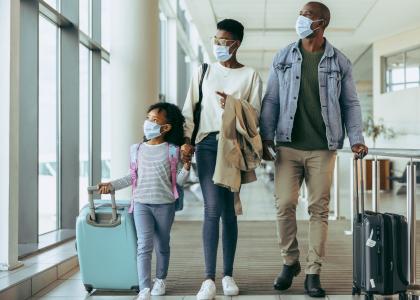University Of Michigan at Ann Arbor
Abbreviated Name
U of M
Geography of Research Institution
Great Lakes
Ann Arbor, MI
United States
The Longitudinal Impact of the COVID-19 Pandemic and Related Multi-Level Mitigation and Contextual Factors on Health and Socioeconomic Outcomes of Individuals and Families From a Vulnerable Population

A “shovel ready” project leveraging the existing longitudinal data collected in the Fragile Families and Childhood Wellbeing Study (FFCWS), the longest running population-based US birth cohort, collected before and throughout the pandemic linked with multilevel COVID-19 related health, social and economic measures, and prospective COVID-19 impact assessments to examine these issues.
Statistical Adjustments of Sample Representation in Community-level Estimates of COVID-19 Transmission and Immunity

This project will develop a valid metric to estimate the true viral incidence and immunity prevalence in the community, examine the health disparities and social inequality, and monitor the epidemic over time as an operational surveillance system.
A National Neighborhood Data Resource to Understand Inequities in the Health and Socioeconomic Impacts of COVID-19 in the United States

This project will use the National Neighborhood Data Archive (NaNDA) to identify which communities are most vulnerable to the immediate and longer-term consequences of the pandemic for a host of behavioral, psychological, social, and economic outcomes.
Consortium Coordinating Center for Social, Behavioral, and Economic Research on COVID-19

This project creates a new independent Social, Behavioral, and Economic Research on COVID-19 Consortium Coordinating Center (SBECCC) for COVID-19 related research. The new SBECCC will include resources and support for research specific to COVID-19.
COVID-19 Supplement to a Computational Examination of Threat and Reward Constructs in a Predominantly Low-Income, Longitudinal Sample at Increased Risk for Internalizing Disorders

This project will study how COVID-19 is impacting mental health in marginalized, low-income, minority populations. Moreover, it will document the way in which resilience factors, including social support, economic policies, and family resources, moderate the negative effect of COVID-19 related stressors on mental health.